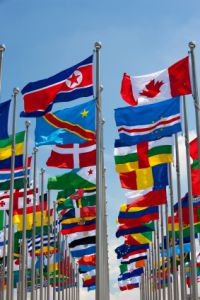
Released in response to the agenda item on 'WHO guidelines: development and governance', of the WHO Executive Board meeting, 27-28 May 2015
Cochrane is an international organization that produces high-quality, relevant, accessible systematic reviews and other synthesized research evidence, and promotes evidence-based decision-making. Cochrane has been an NGO in official relations with the World Health Organization (WHO) since 2011 and an important part of our workplan involves support for the WHO guideline development process.
Cochrane contributors published some of the earliest critiques of the WHO guideline process (Oxman, 2007) which called for guidelines to use reliable, independent research summaries that are free of conflicts of interest (Boyd, 2006). WHO responded to these criticisms by developing a uniform review process in developing guidelines. This included implementing procedures to manage conflicts of interest. Recent analyses of WHO guidelines (Sinclair, 2013; Burda, 2014) have shown that editorial independence and use of reliable evidence have increased markedly since WHO has implemented these reforms, and highlight that these high standards are essential for WHO’s credibility.
WHO guideline panels have implemented procedures to make the link between recommendations and the underlying evidence more transparent. There is room for improvement (Alexander, 2013). Further research is needed to improve methods to create guidelines for urgent public health problems where evidence may be very scarce or of poor quality. Cochrane will continue to offer methodological support and training to WHO as it tackles these challenges.
Cochrane urges WHO to continue strengthening the use of evidence following a rigorous methodology in guideline development. We recognize that panels should be cognizant of public and member state commentary on the issues, but the guidelines process needs to remain independent and separate from any individual or body with potential conflicts of interest. Involving participants with conflicts of interest in guideline development is likely to influence recommendations, make them less evidence based and impact on their credibility (Cosgrove, 2013). Cochrane urges the WHO to protect against the influence of conflicts of interest in the guideline development process to ensure that the identification and evaluation of the best available evidence remains at its core.
REFERENCES:
Alexander PE, Bero L, Montori VM, Brito JP, Stoltzfus R, Djulegovic B, Neumann I, Rave S, Guyatt G. World Health Organization recommendations are often based on low confidence in effect estimates. J Clin Epidemiol 2013, 67: (2014) 629-634.
Boyd E A, Bero L A. Improving the use of research evidence in guideline development: 4. Managing conflicts of interest. Health Research Policy and Systems 2006, 4:(16) doi:10.1186/1478-4505-4-16.
Burda BU, Chambers AR, Johnson JC. Appraisal of guideline developed by the World Health Organization. Public Health 2014, 128:(2014): 444-474.
Cosgrove L, Bursztajn HJ, Erlich DR, Wheeler EE, Shaughnessy AF. Conflicts of interest and the quality of recommendations in clinical guidelines. J Eval Clin Practice 2012, 19:(2013):674-681.
Oxman A D, Lavis J N, Fretheim A. Use of evidence in WHO recommendations. Lancet 2007, 369:(9576): 1883-1889.
Sinclair D, Isba R, Kredo T, Zani B, Smith H, Garner P. World Health Organization Guideline Development: An Evaluation. PLoS ONE 2013, 8(5): e63715. doi:10.1371/journal.pone.0063715

